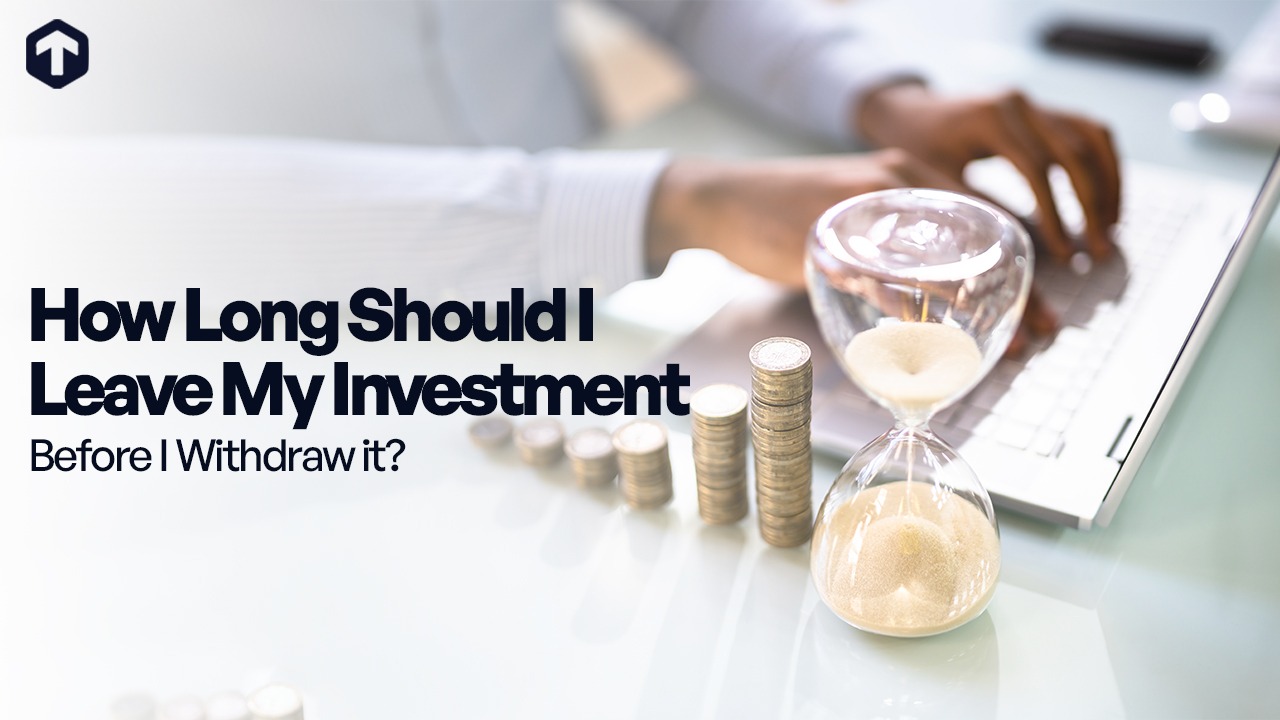Investing in the stock market can be a great way to grow your wealth over time, but it can also be a bit tricky when it comes to deciding when to withdraw your investments.
The answer to how long you should leave your investment before withdrawing depends on a variety of factors, such as your investment time horizon, risk tolerance, financial situation, and investment goals.
In this article, I’ll walk you through some of the factors that can influence your decision on when to withdraw your investments, as well as some tips on what to do once you’ve decided to pull your money out. Let’s look at them.
3 Tips to Determine if You Should Hold, Sell, or Withdraw Your Investment
1. Understanding your Risk Tolerance
How far are you willing to go in terms of risk? What’s too much risk for you? That’s a crucial thing that would determine how frequently you’d sell your shares. For example, if you are a more cautious investor, you might wish to take your assets out faster to reduce your chances of losing money in a price crash. A more aggressive investor, on the other hand, would be more motivated to hold onto their investments for a longer amount of time to benefit from the possibility of bigger profits.
Understanding your risk appetite would help you make more informed decisions regarding when to sell, buy, or hold and what type of investments to make.
2. Time Horizon
This refers to how long you’d like to keep your investment. Before you buy a particular stock, you should consider your time horizon. Would this investment be long-term or short-term?
If your investing plan is long-term, you may want to hold onto your money in the market longer to benefit from compound interest and long-term growth. This can include keeping your investments in the market for many years if not decades. This also means that you’d likely have to build patience when the market slumps. Why? Because you have a long-term investment goal in mind. However, if it is short-term, you might prefer to withdraw your assets early to reduce your chances of losing money during a market downturn. In other words, you may likely withdraw your investment after a few months or a year.
Your decision could depend on factors like your financial goal, age, or the timeline you need the money.
3. Your Financial Situation
The current state of your finances could also affect your decision to withdraw or hold on to your investment. While it’s important to have an emergency fund, I understand that some emergencies could come up that would be beyond your capacity. If that’s your case, you may want to withdraw your investments ASAP.
Viable Reasons You May Want to Sell/Withdraw an Asset
Now that we’ve evaluated factors that could determine what decision to make on your investment, let’s look at viable reasons that could make you sell/withdraw your assets.
1. The Market Situation
Before you decide to sell a stock, you need to consider the market situation.
For example, if the market is currently bearish (down), it would be advisable to hold on to your stocks till the market improves. But if it becomes bullish (high), it may be a good time to sell your stocks so that you can lock in your profits.
2. Company Performance
Take a close look at the management team, business plan, and financial statements of the company you invested in. Holding onto the shares may make sense if the organization is doing well and has a promising future. However, it might be appropriate to sell the stock if the business is having trouble and has a bleak future.
We understand how important a company’s performance is to your assets, that’s why we do a weekly roundup of the stock market. So, if you’re subscribed to Tomi from Trove, you’re eating gooooood. Ain’t you? 😉. If you’re not part of the Trove tribes, you should subscribe here.
3. Your Investment Goals
If a stock no longer aligns with your investment goals, it’s okay to sell it. Your Time Horizon comes into play here. Are your investment goals for those particular assets short-term or long-term? This would also determine if and when you should sell it.
4. Diversification
Before you sell a stock, think about what impact it would have on your overall portfolio diversity. If a larger part of your investment isn’t diversified, selling it could increase your risk of losing your asset and also reduce your chances of potential returns. Having a diversified portfolio instead would help you manage risk, reduce the volatility of your investments, and increase the potential for higher returns.
5. Tax Implication
When you make a profit from your investment—whether as a business or as an individual, you are considered to have made an income. With that understanding, the government collects tax on each investment that they use to promote the welfare of the state/nation.

Read Also: Who Should be Your Next of Kin
What is the Tax Implication of This on Your Investment?
If the investment you plan to sell is over a year old, you’d be paying a long-term capital gain tax which is usually lower than the short-term capital tax gain. However, if you held your assets for less than a year, you’d be subject to a short-term capital gain tax which is high. So, this is another reason to consider before you withdraw your investment.
And, here you go!
I hope these tips help you make informed decisions about whether to sell, buy, hold, or withdraw an investment.
Let me know your thoughts. Tweet at me using the hashtag #TroveInvestmentBites.


